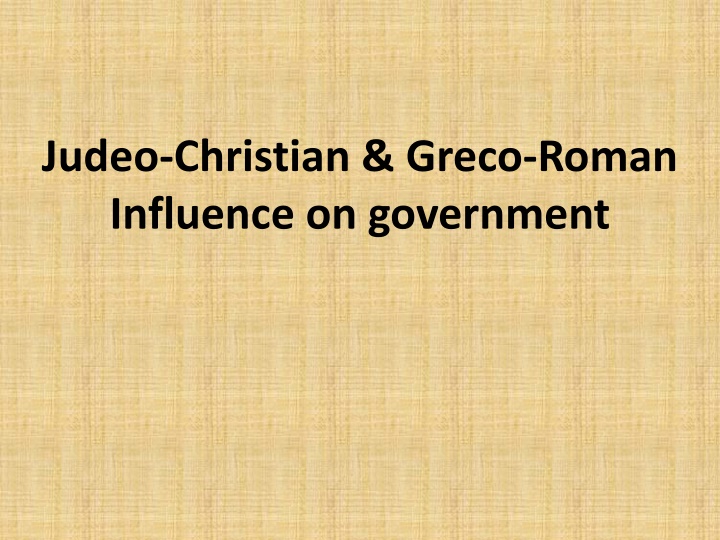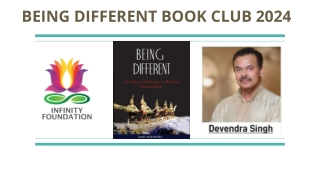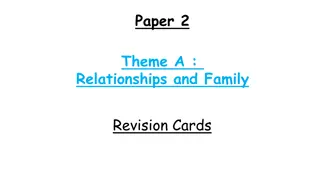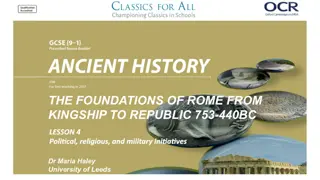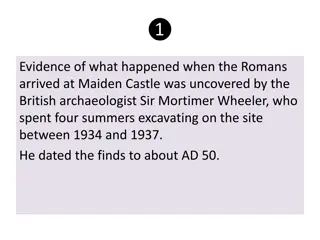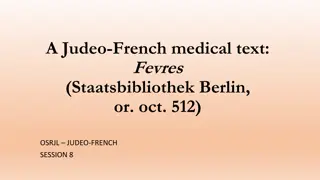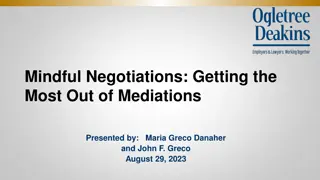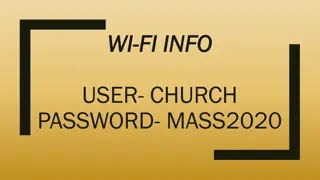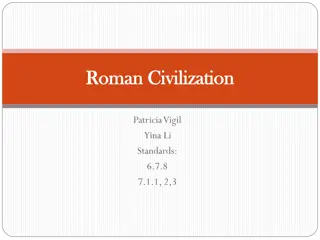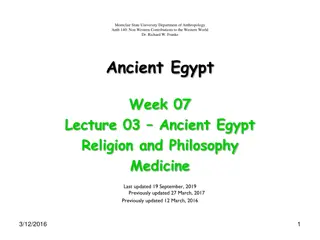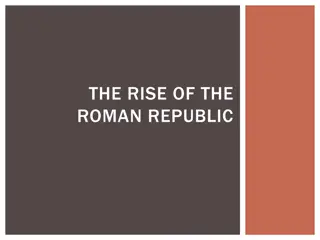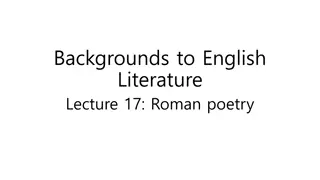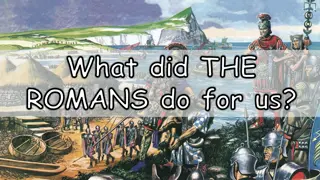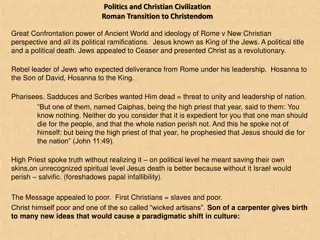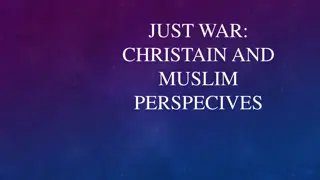Influences and Views on Government: Judeo-Christian and Greco-Roman Perspectives
Explore the influences of Judeo-Christian and Greco-Roman traditions on government systems, including forms of government such as monarchy, democracy, and republic, along with views on citizen participation, natural laws, and legal principles. Delve into how concepts from Ancient Greece and Rome shape modern governance, touching on democracy, laws, citizen rights, and the role of philosophy in leadership.
Download Presentation

Please find below an Image/Link to download the presentation.
The content on the website is provided AS IS for your information and personal use only. It may not be sold, licensed, or shared on other websites without obtaining consent from the author.If you encounter any issues during the download, it is possible that the publisher has removed the file from their server.
You are allowed to download the files provided on this website for personal or commercial use, subject to the condition that they are used lawfully. All files are the property of their respective owners.
The content on the website is provided AS IS for your information and personal use only. It may not be sold, licensed, or shared on other websites without obtaining consent from the author.
E N D
Presentation Transcript
Judeo-Christian & Greco-Roman Influence on government
Forms of Government Monarchy: rule by a king or monarch Aristocracy: rule by small group of noble, land- owning families Oligarchy: rule by wealthy people Democracy: rule by the people What does ocracy & -archy mean? What does demo mean?
Types of Democracy Direct Democracy: people make laws themselves Representative Democracy/ Republic: people elect representatives to make laws for them
Background Ancient Greece: limited direct democracy Ancient Rome: republic What type of government do we have in the United States?
Greco-Roman Views Citizens should participate in government The world has natural laws discovered through reason Democracy can be protected by having branches of government Laws should be written How is the United States similar?
The Roman Empire and the Law Roman law applies to entire empire; protects citizens, property - all citizens have right to equal treatment under law - person considered innocent until proven guilty - burden of proof rests with accuser, not accused - unfair laws could be set aside
Plato & Aristotle Did not like democracy Thought it was mob rule Believed that government should be led by philosopher-king who ruled in interest of his people, not as a tyrant (rules without concern for his people) Believed people had the ability to reason (think)
Judeo-Christian Views Every person has: Worth & dignity because they were created by God Ability to choose between right & wrong Responsibility to help others in need & the community Ten Commandments: set of written moral rules
Romans spread of Judeo-Christian Ideas Jews expelled from homeland by Romans, spread their ideas as they moved around Apostle Paul spread ideas around Mediterranean (including Rome) Roman Empire later adopted Christianity & spread ideas around empire
1) What was groundbreaking about the development of democracy? A People were able to govern without using written laws. B People were governed by councils, instead of by an absolute ruler. C Democracy brought together religious faith and government. D Democracy balanced power among religious leaders and kings.
1) What was groundbreaking about the development of democracy? B People were governed by councils, instead of by an absolute ruler.
2) A political system in which representatives are elected by the people follows the model of Adirect democracy. B a republic. C branches of government. DJudeo-Christian tradition.
2) A political system in which representatives are elected by the people follows the model of B a republic.
3) In the Greco-Roman view, the world is governed by natural laws that can be discovered through Areason. B tradition. C faith. Dcitizen participation.
3) In the Greco-Roman view, the world is governed by natural laws that can be discovered through A reason.
4) In Judeo-Christian tradition, helping others in need should be the Aonly duty of political leaders. B sole mission of religion. C responsibility of government. Dresponsibility of every person.
4) In Judeo-Christian tradition, helping others in need should be the D responsibility of every person.
5) What was one means by which Greco- Roman and Judeo-Christian values spread throughout Europe in the first centuries A.D.? Aexplorers in the Age of Discovery B expansion of the Roman Empire C missionaries building churches Dconversion by the sword in Africa
5) What was one means by which Greco- Roman and Judeo-Christian values spread throughout Europe in the first centuries A.D.? B expansion of the Roman Empire
Assignment Using the information, create a Venn Diagram: A: Greco-Roman, B: Judeo-Christian, C: Both A & B
